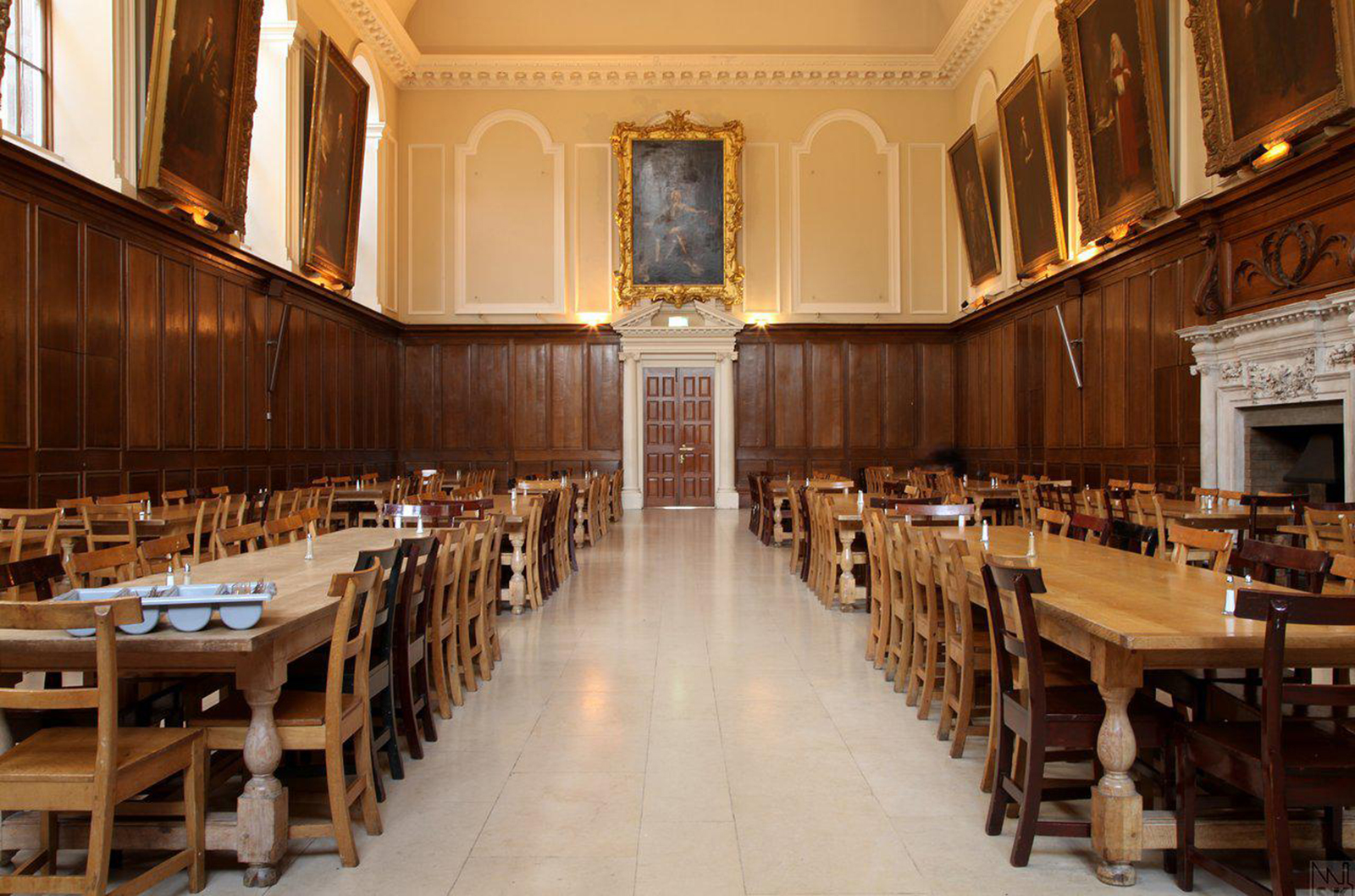Henry Longden
tn2 Editor
A group of scholars have been criticised for remaining seated during prayers at Commons; the three-course meal served to scholars and fellows each weekday in the dining hall. Trinity News understands that a fellow has condemned the situation, and students have been called to the Junior Dean.
Over the past four weeks, a break from custom has grown in number, as a few scholars have refused to stand the Latin psalm and grace, which take place before and after food is served. This has consisted of as many as 10 people remaining seated.
Intentions are split, but some scholars have taken issue with the Christian doctrine present in the grace. Psalm 145 of the Sixto-Clementine Vulgate, the Latin edition of the Bible published by Pope Clement VIII, has been delivered since Bishop William Bedell introduced it to the college in 1627.
One of the scholars who has decided to sit during prayers, links the issue to their wider concern about the role of faith in Irish education. “In our country, schools have the power to determine admission policies based on religious denomination. Taxpayers pay [teachers] for citizens to be prepared for religious rituals, and faith is systematically misrepresented as fact,” they said. “It is in this cultural context that the tradition of ten Latin prayers a week at dinnertime exists.”
Others have pointed to the colonial issues which are present in the grace. After the meal, a grace is given to The Holy Trinity along with thanks for the “most serene ones”: Elizabeth I, James I and Charles I. Elizabeth I is given thanks as founder, James I as gifter of much land to the college, and Charles I as king when Bedell composed the graces. All three issued charters to the new Trinity College.
One anonymous scholar commented: “There’s an extent to which the grace rightly acknowledges Trinity’s history. However, this acknowledgement is a wholly positive glorification and glosses over the complex, and often negative, colonial issues that are inextricable connected to that history. People should have a choice on how to consider these issues.”
There is a question now as to whether these scholars’ actions constitute a breaking of college rules which all students must assent to when receiving scholarship. Sub-section 3 of section 4, chapter 6, of the college statutes state that, “By tradition and where possible, a Scholar shall say Grace at Commons pursuant to the Chapter on the College Community.” By that chapter it is required that “Grace shall be said both before and after Commons with propriety.”
The situation for many centres around whether scholars should have the choice to sit or stand, and not on the existence of the grace in general. Another scholar wanted to make clear that no disrespectful is meant towards the Scholarship, explaining that “I think that the debate about whether or not such a prayer should be said in a university context is appropriate and necessary.I want the right to not participate. I cannot say whether the prayer should go completely.”
Although most are trying refusing to take action or enter discussion, one Scholar sees this as the necessary solution; “I think the debate about whether or not a religious prayer said ten times a week literally from a podium is compatible with the notion of an inclusive and modern university is absolutely worth having.”
Some within the community are disappointed with this break from custom. One scholar described it as a “borderline arrogant and disrespectful misunderstanding of a harmless and historic tradition”. Secretary to the Fellows Frank Bannister added that “Grace is a propriety or protocol, a tradition which, inter alia, is a sign of respect for the head of High Table. It has absolutely no religious significance (indeed many people sit for grace in other circumstances).” A number of the individuals involved have received the brunt of consternation, and have been “surprised” by the reactions of those around them. “We didn’t expect to be treated with scorn for simply not participating in a religious observance,” one participant has commented.
Many see scholarship as an institution steeped in tradition and majesty. Recently it has fought against change, especially in light of budget restraints. Scholarships and fellowships are awarded to students and staff every year on the basis of academic achievement. Throughout the year, scholars are paid to recite a Latin psalm and grace at a lectern during Commons.






